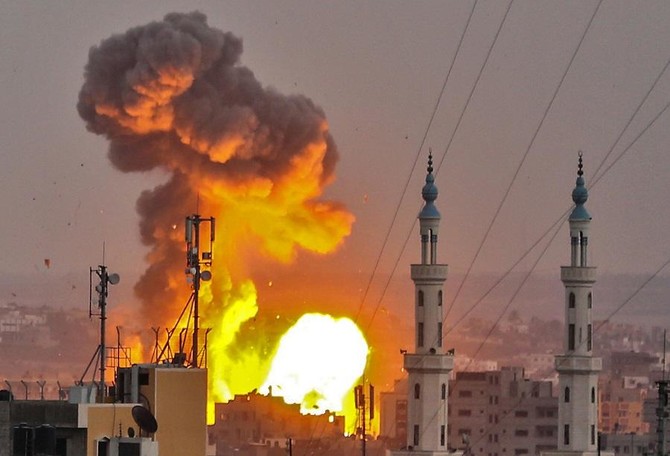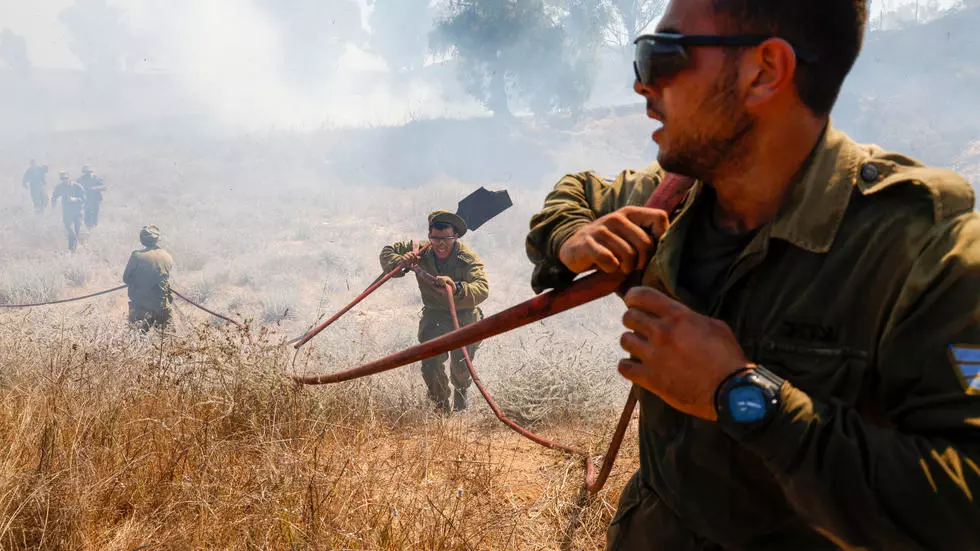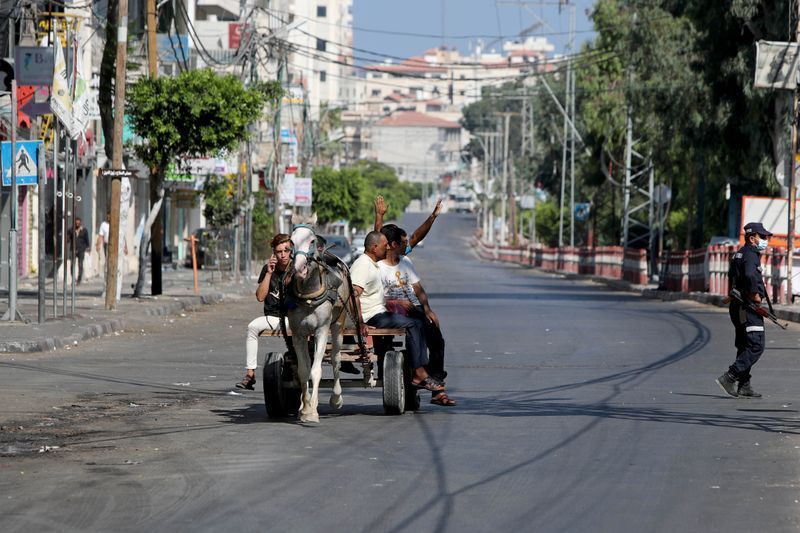
A picture shows a fireball exploding in Gaza City during Israeli bombardment. /AFP
A picture shows a fireball exploding in Gaza City during Israeli bombardment. /AFP
Israeli tanks and aircraft carried out new strikes on Hamas targets in Gaza overnight in response to the launch of so-called fire balloons across the border, four members of the Palestinian Islamic Jihad (PIJ) were killed, the PIJ said in an official statement on Tuesday.
Eyewitnesses said the powerful explosion came when Israeli reconnaissance drones and warplanes hovered over the area. However, an Israeli army spokesperson denied Palestinian media reports that Israel was behind the deadly explosion in Gaza.
Israel has bombed the Hamas-ruled enclave almost daily since August 6, in response to the airborne incendiary devices and, less frequently, rockets launched across the border.
"Fighter jets, tanks and aircraft struck military posts and an underground infrastructure belonging to the Hamas terror organisation in the southern Gaza Strip," the army said.
The flare-up comes after U.S. Secretary of State Mike Pompeo visited Israel on Monday and as British Foreign Secretary Dominic Raab was due to hold talks in both Israel and the Palestinian Territories on Tuesday.

Fire bombs fitted to balloons launched across the border from Gaza, have sparked extensive blazes on farmland in southern Israel menahem kahana. /AFP
Fire bombs fitted to balloons launched across the border from Gaza, have sparked extensive blazes on farmland in southern Israel menahem kahana. /AFP
The fire balloons, makeshift incendiary devices fitted to inflated balloons, condoms or plastic bags, have sparked multiple blazes on farmland in southern Israel, causing significant damage to crops.
They are widely seen as an attempt by Hamas to improve the terms of an informal truce under which Israel committed to ease its 13-year-old blockade in return for calm on the border.
But so far Israel's response has been to tighten the blockade. It has banned Gaza fishermen from going to sea and closed its goods crossing with the territory, prompting the closure of Gaza's sole power plant for want of fuel.
According to a source close to Hamas, the movement wants the extension of an industrial zone in the east of Gaza, and the construction of a new power line.
Hamas also wants the number of Israeli work permits issued to Gazans to be doubled to 10,000 once anti-coronavirus restrictions are lifted, the source said.
Gaza in lockdown to try to contain its first COVID-19 outbreak
A lockdown took hold in Gaza on Tuesday after confirmation of the first cases of COVID-19 in the general population of the Palestinian enclave, whose restricted borders have spared it from wide infection.

Gaza reports first COVID-19 cases outside quarantine areas, declares lockdown. /Reuters
Gaza reports first COVID-19 cases outside quarantine areas, declares lockdown. /Reuters
On Monday, the Hamas authorities announced a 48-hour curfew across the territory after four cases of the virus were confirmed in a Gaza Strip refugee camp.
The Health authorities in the Hamas Islamist-run territory of two million people are concerned over the potentially disastrous combination of poverty, densely populated refugee camps and limited hospital facilities in dealing with an outbreak.
A government spokesperson said four cases of the coronavirus were confirmed in a single family in a refugee camp, the first in Gaza that did not involve people quarantined in border facilities after crossing into the coastal enclave from Egypt and Israel.
"No war has ever forced the people into a strict curfew (but) a weak virus has confined two million in the Strip," Freih Abu Middain, a Gaza-based former justice minister, wrote on social media. "All of (Israel's) F-16s, missiles and tanks couldn't do that."
Gaza's health ministry said the four COVID-19 cases were uncovered after a woman traveled to the West Bank, where she tested positive. It said it was carrying out contact tracing to stem the spread of the infection.
The ministry said there have been 110 cases of the coronavirus inside border quarantine facilities and one death since the world pandemic began.
Last month, the Gaza director of the World Health Organization, Abdelnaser Soboh, said the territory's health system could deal with only 500 positive cases at one time.
(With input from agencies)